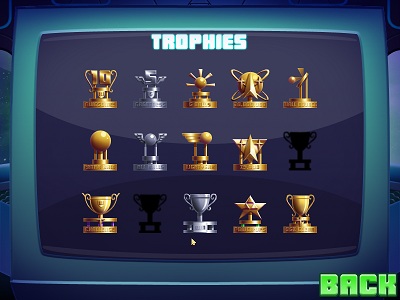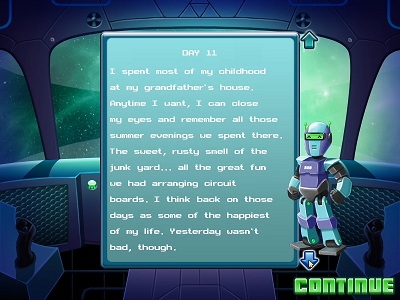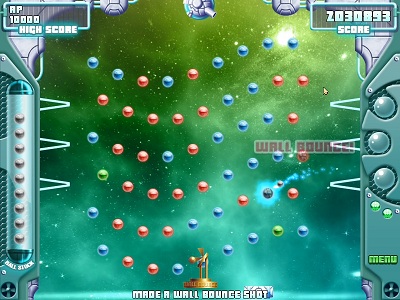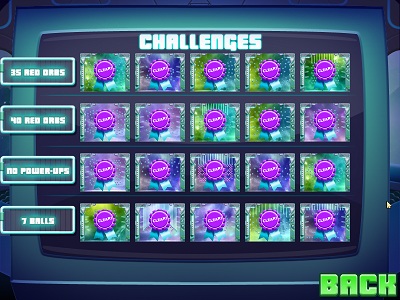Caelum
| Caelum | |
|---|---|
 |
|
| Platforms | Windows |
| Genre | Puzzlinko |
| Score | 4  |
| Buy from Developer ApGames | |
What would you think when told of a game combining elements of pachinko, Arkanoid and Puzzle Bobble? Like me, you'd probably be a bit confused. Probably something involving balls being shot and bounced around. The concept was interesting enough to try when we received a request to review the Caelum by ApGames The upstart Swedish developers recently released their self-proclaimed "addictive physics-based arcade game." So let's get right into it and see how the unique gameplay combinations measure up.
The First Hour was provided a review copy of Caelum by the developers.
Upon entering the game, the player is greeted with a limited variety of game modes, namely Classic and Challenge. Challenge is unavailable until you play through Classic mode, so we start at the Classic campaign. The first stage takes you through the ropes and explains the basics. The player controls by aiming a small cannon at the top of the screen opon a field of orbs, and the goal is to clear each of the red orbs in order to advance to the next level. Blue orbs are simply obstacle/point orbs whereas purple orbs have a floating knockback property on hit, which can be used to chain orbs behind them. After enough consecutive hits, happy prompts appear, visually displaying score plateaus and extra balls gained.
Green orbs serve as powerups, allowing players who breaks them to augment a future chosen shot with one of three special effects. The first is a fireball, which will power the shot ball through through any hit balls, avoiding the standard bounceback. A downfall to this powerup is that generally, only a few orbs can be destroyed per shot using this method, and gravity paddle returns are deactivated with the fireball. The second powerup is gravity control (my personal favorite), which allows you to directly control the paddle at the bottom of the screen. Normally the paddle only moves slowly back and forth on its own. If a shot ball hits the paddle, gravity temporarily reverses and the ball flies up to the top of the screen before dropping again. This essentially gives you three shots for the price of one (not as controllable of course, but close) and many more opportunities at extra balls and score bonuses. Without the powerup, paddle hits only happen very rarely, perhaps once every two full screens. The third powerup is an explosive ball, which will cause the shot ball to explode on contact with a red ball if it is the first touched. The explosion will vaporize all nearby balls as well as causing a decent bounceback. In terms of strategy, I've found that gravity control is best used as early as possible or in a situation to force an extra ball where you may not otherwise get one. Explosions can come in handy during various scenarios to destroy stubborn hidden orbs or just to clear an area. Fireball is mainly used to clear a couple orbs shielded by others nearing the end of a level.
 Classic mode takes us through ~50 maps of varied orb breaking goodness, which will probably take players around three hours. Upon completion, Challenge mode is unlocked with 20 extra high-difficulty maps. For these, you'll need to clear 35 red orbs, 40 red orbs, work with no power-ups and clear levels with only 7 starting balls. Additionally, Classic mode "hard" is activated after the first playthrough. So all in all, players could expect somewhere around seven hours of gameplay to fully complete the game. Desire for completion is aided by a modest trophy "achievement" system, with 15 different tropies to quench one's desire for positive reinforcement.
Classic mode takes us through ~50 maps of varied orb breaking goodness, which will probably take players around three hours. Upon completion, Challenge mode is unlocked with 20 extra high-difficulty maps. For these, you'll need to clear 35 red orbs, 40 red orbs, work with no power-ups and clear levels with only 7 starting balls. Additionally, Classic mode "hard" is activated after the first playthrough. So all in all, players could expect somewhere around seven hours of gameplay to fully complete the game. Desire for completion is aided by a modest trophy "achievement" system, with 15 different tropies to quench one's desire for positive reinforcement.
Caelum also includes little light-hearted story/dialogue sequences, where the ship's robot interacts with the player between each stage. It begins by talking about the purpose behind the game and continues through by telling jokes and talking about humorous interactions with planets and fellow travelers. The official story is as follows: "Humanity faces a severe energy crisis. Having used up the planet’s resources, we must look to outer space for alternatives – and, fortunately for us, space is filled with energy orbs just waiting to be collected. This is where ROB comes in – short for Robotic Orb Blaster, his task is to blast those orbs! On his journey he’ll encounter new friends and exciting adventures, and explore the depths of endless space." So, it's nothing substantial of course, but certainly a nice attempt by the developers at breaking up the monotony of puzzles and explaining some purpose behind the game and the player's actions.
 A second measure of longevity in many games is a scoring system. It essentially works as follows: players gain points from chains, extra balls remaining, powerups remaining and completion rate. Chain bonuses naturally progress exponentially, although I'm not sure of any exact equation. In addition, players receive an extra ball for a 15 chain, which more or less makes the shot free, which is a significant event on the more difficult screens. Players also receive 20,000 points for each extra ball and unused collected powerups remaining upon completion of a screen. Each percent of completion is also worth 1000 points. This sounds nice, but isn't nearly as important (or perhaps balanced as well) as the other scoring elements. Caelum has a decent scoring system but there's ultimately not enough to
keep a player interested in it, largely because it's lacking any sort of local or online score lists.
A second measure of longevity in many games is a scoring system. It essentially works as follows: players gain points from chains, extra balls remaining, powerups remaining and completion rate. Chain bonuses naturally progress exponentially, although I'm not sure of any exact equation. In addition, players receive an extra ball for a 15 chain, which more or less makes the shot free, which is a significant event on the more difficult screens. Players also receive 20,000 points for each extra ball and unused collected powerups remaining upon completion of a screen. Each percent of completion is also worth 1000 points. This sounds nice, but isn't nearly as important (or perhaps balanced as well) as the other scoring elements. Caelum has a decent scoring system but there's ultimately not enough to
keep a player interested in it, largely because it's lacking any sort of local or online score lists.
The game's presentation is solid, but nothing noteworthy. Its visuals work well enough for a low-budget casual puzzle game, with some decent effects and chain prompts. However, I feel that this area could have been improved quite a bit with more varied background visual. At least perhaps a couple more in story more to represent the different locations the player is traveling through on their quest. The audio has similar issues. While the background music works well for the "chill, casual" atmosphere of the game, the sound effects are extremely boring and bland. Some extra work of these could have also significantly boosted the game experience and create a better overall atmosphere. When you have games that can become monotonous (like puzzle games), the feeling and atmosphere can be especially important for a player.
In the end, I struggled a bit to determine how I really feel about the game. For a casual game, Caelum works mostly fine. It offers several hours of easy-to-learn, light-hearted entertainment at a good value (currently $7 at the developer's website). They took steps to encourage buyers to continue playing and get the most out of the game. But as a "traditional" gamer and a critical reviewer, it doesn't quite match up to other offerings in most of the categories important to me. As such, I will rate the game as 8 (casual) and 4 (traditional), with the 4 as my official rating.


